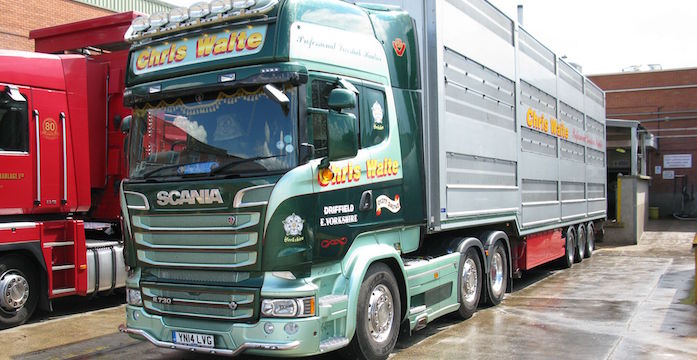The Government has unveiled plans to ban the export of live animals for slaughter and fattening at the start of what it said was a ‘renewed push to strengthen the UK’s position as a world leader on animal welfare’.
Launching an eight-week consultation in England and Wales that includes a number of other proposals to improve the welfare of animals in transit, Defra said live animals commonly have to endure excessively long journeys during exports, causing distress and injury.
But while, previously, EU rules prevented any changes to these journeys, leaving the EU has enabled the UK Government to pursue its longstanding ambition to end live exports for slaughter or fattening,becoming the first country in Europe to do so. The live export ban will not affect exports for breeding purposes, which are important for the UK pig sector, or poultry exports.
Around 6,400 animals were transported from the UK directly to slaughter in continental Europe in 2018, based on internal figures.
Other proposals to further improve animal welfare in transport more generally, include:
- reduced maximum journey times
- animals being given more space and headroom during transport
- stricter rules on transporting animals in extreme temperatures
- tighter rules for transporting live animals by sea.
Mr Eustice said: “We are committed to improving the welfare of animals at all stages of life. Today marks a major step forward in delivering on our manifesto commitment to end live exports for slaughter.
“Now that we have left the EU, we have an opportunity to end this unnecessary practice. We want to ensure that animals are spared stress prior to slaughter.”
This consultation takes into account the responses to the 2018 Call for Evidence, as well as the report published by the then Farm Animal Welfare Committee (now known as the Animal Welfare Committee), which is made up of farming and veterinary experts, into the existing welfare standards for animals during transport.
Defra indicated there will be more announcements on animal welfare to come, with ‘further proposals to improve standards and eradicate cruel practices expected to be set out in the coming months’.
Reaction
The British Veterinary Association (BVA) welcomed the announcement. BVA President, James Russell said: “BVA has long believed that animals should be slaughtered as close as possible to where they have been reared and not be exported to countries with unknown standards or standards that are below those in the UK. We welcome this consultation looking at all aspects of animal welfare at transport.
“Live animal transport is a complex issue which includes varying factors of welfare and needs of different species. It is important to recognise that journey length and time are not the only things which can affect welfare, and that an evidence-based approach to improvements is essential.”
NPA chief executive Zoe Davies said: “These proposals have potentially significant implications for the UK pig sector. We will scrutinise the document very closely and respond in detail to the consultation, stressing, that while we support moves to improve pig welfare, any changes introduced must be fully backed by evidence.”
The announcement was welcomed by animal welfare organisations.
RSPCA CEO Chris Sherwood said: “We welcome plans to end live exports and look forward to seeing this happen as the RSPCA has campaigned on this issue for more than 50 years.”
Peter Stevenson, OBE and Compassion in World Farming’s chief policy advisor said CIWF was ‘delighted’ that Defra plans to ban live exports for slaughter and fattening.
“We have campaigned for over 50 years against the massive suffering caused by this inhumane, archaic trade, so this unambiguous proposal is very welcome,” he said.
“We urge farmers not to oppose the proposed ban but rather to recognise that this is an important part of moving forward to a high welfare future.”




